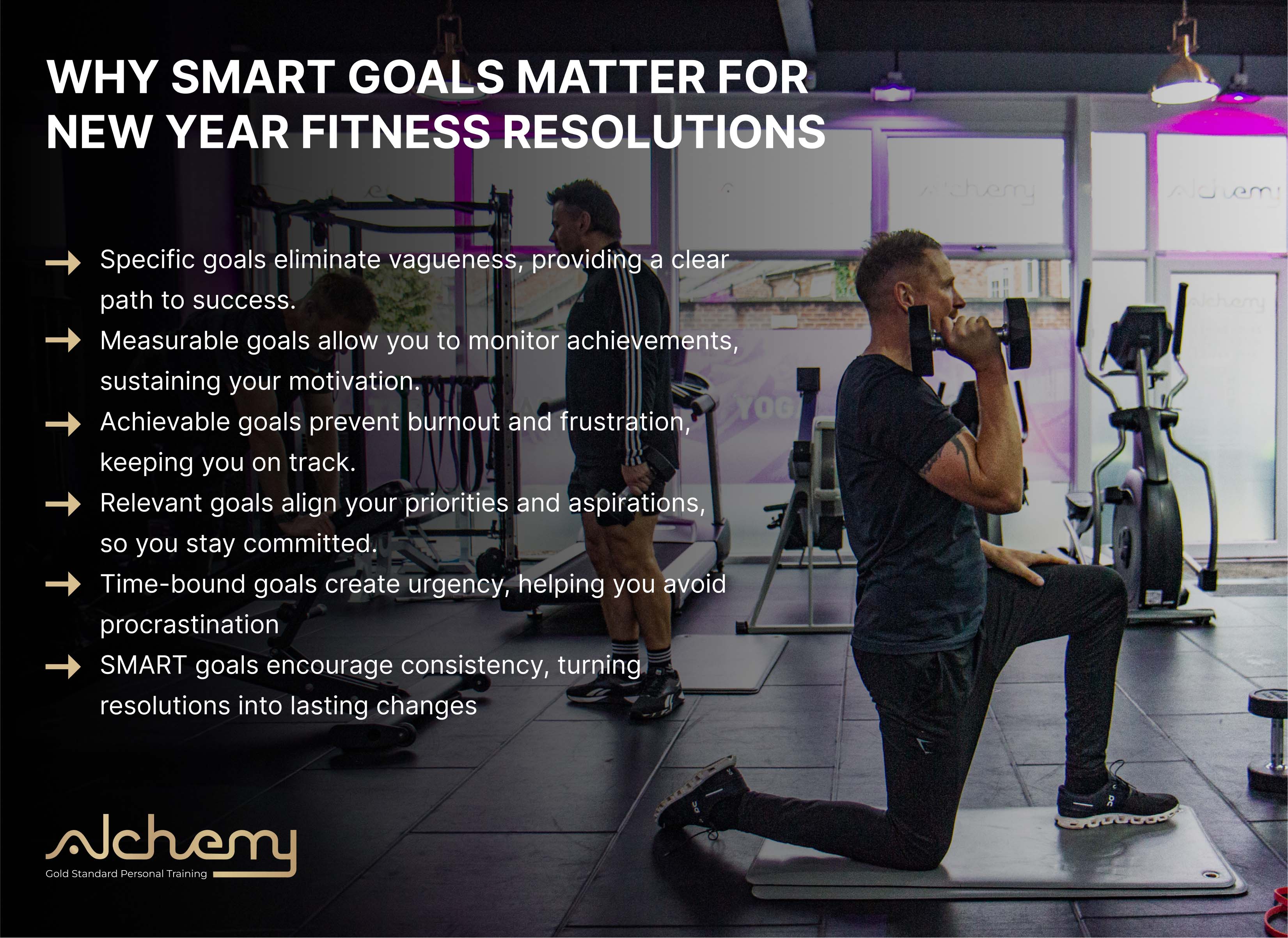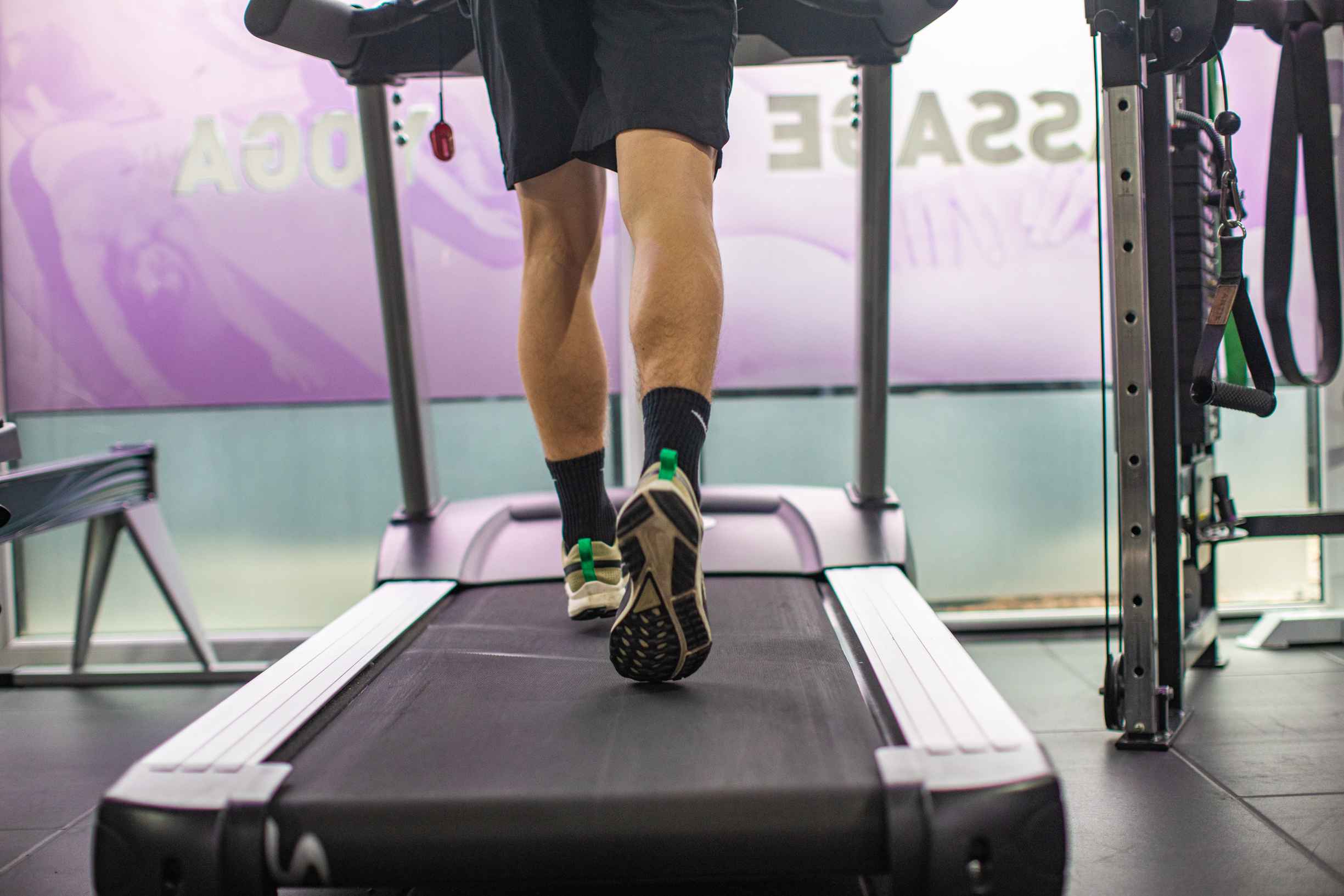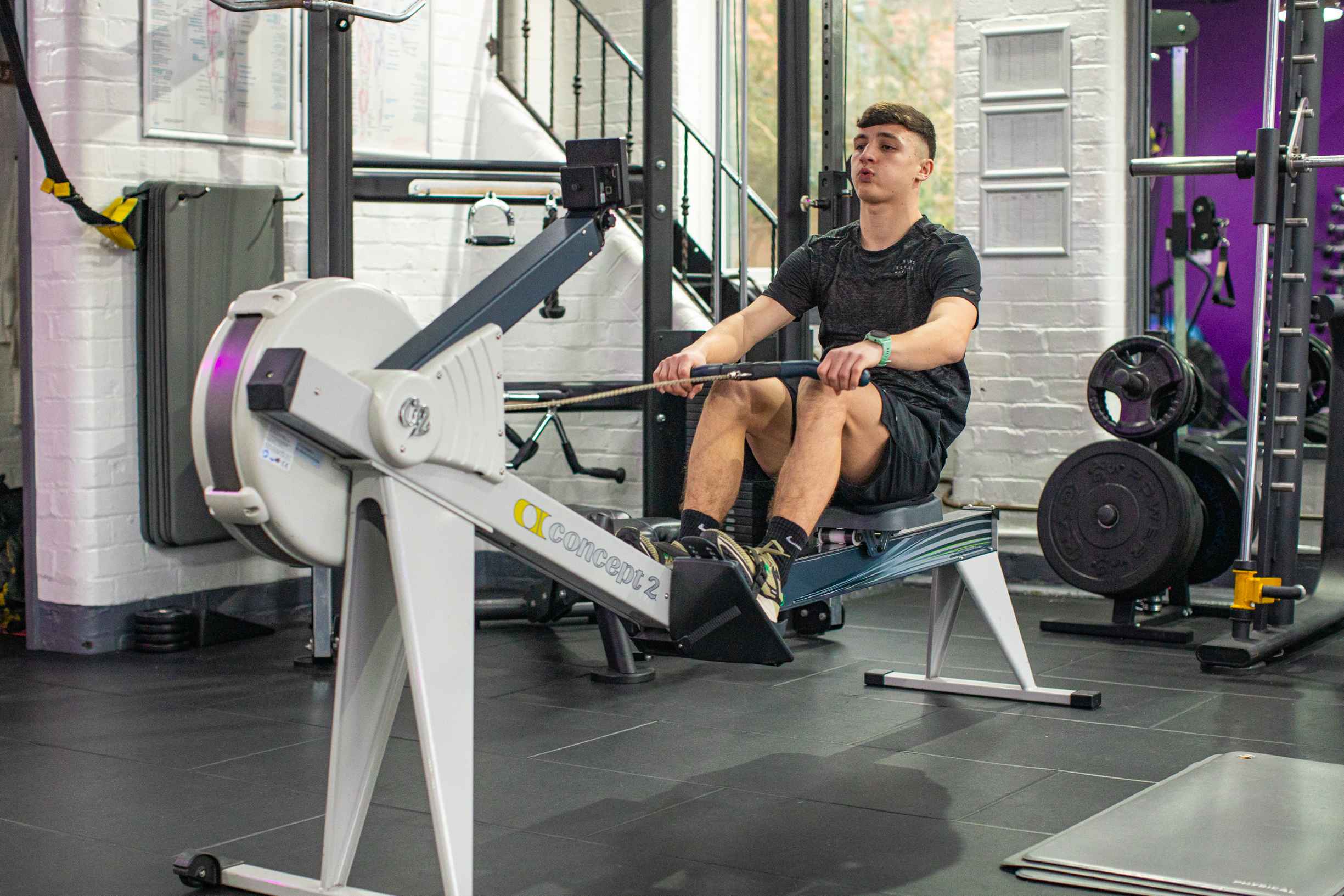PRIVATE GYM OPEN 7 DAYS A WEEK IN WILMSLOW AND ALDERLEY EDGE, CHESHIRE.
How to Set Smart Fitness Goals for Your New Year Resolutions
How to Set Smart Fitness Goals for Your New Year Resolutions
Jan 3, 2025

The start of a New Year often brings ambitious fitness resolutions, but many people struggle to stick to them. Over 80% of individuals who make resolutions abandon them by February, often due to vague or unrealistic goals.
SMART stands for Specific, Measurable, Achievable, Relevant, and Time-bound. To increase your chances of success, set SMART fitness goals that provide clarity and direction. Following this framework for setting goals can boost motivation, making it more likely that you'll follow through. This approach not only makes your resolutions attainable but also helps you create lasting habits.
What Are SMART Fitness Goals?
SMART is an acronym for Specific, Measurable, Achievable, Relevant, and Time-bound. It’s a tried-and-tested approach to goal-setting that keeps you focused, motivated, and accountable. Let’s break it down:
Specific
Your goals should be clear and well-defined. Instead of saying, "I want to be fit," aim for something concrete like, "I want to run 5km without stopping." If you're new to fitness, a great start is to consider the best cardio exercise for beginners to try, such as brisk walking or cycling.
Measurable
Use numbers or metrics to track your progress. For instance, "I will lose 5kg in three months" is measurable, whereas "I’ll lose weight" is not.
Achievable
Be realistic. Consider your current fitness level and set goals within reach. Unrealistic targets can lead to frustration and burnout.
Relevant
Align your goals with your lifestyle and broader aspirations. If improving endurance is your priority, training for a marathon is more relevant than joining a weightlifting class.
Time-bound
Set a deadline. Goals without a timeline lack urgency and can easily be postponed. For example, if you aim to run a 5k by June 15, set deadlines for your training milestones by March 1 and for completing your long runs by February 1.
Why SMART Goals Matter for New Year Resolutions
Many New Year resolutions fail because they’re often driven by fleeting motivation rather than clear planning. SMART goals provide structure, helping you break down your ambitions into manageable tasks.

For example, let’s say your resolution is to “get in shape.” Without clarity, it’s easy to lose momentum. By setting a SMART goal like, “I will attend gym classes per week for two months with a personal trainer to be fit,” you’ve created a plan that is specific, measurable and achievable.
When your resolutions are realistic and time-bound, you're more likely to stick to them, building habits that last well beyond January.
Steps to Craft Your SMART Fitness Goals

Ready to turn your dream body transformation into actionable goals? Follow these steps:
1. Evaluate Your Current Fitness Level
Understanding where you’re starting from is essential. Assess your stamina, strength, and flexibility. For instance, if you can currently run 1km, aim for 3km within a month instead of jumping to a marathon goal.
2. Write Your Goals Down
Document your goals in a journal, fitness app, or even on a sticky note on your mirror. Writing them down helps solidify your commitment and keeps your goals visible.
3. Break Your Goals Into Milestones
Big goals can feel overwhelming. Divide them into smaller, actionable steps. For example, if you aim to lose 10kg in six months, set a milestone of 1.5kg per month. Celebrate each win to stay motivated!
4. Find a Support System
Share your goals with friends, join a fitness group, or hire a personal trainer. Accountability partners can provide motivation and encouragement when things get tough.
5. Reward Yourself
Celebrate your progress, whether it’s completing a workout streak or hitting a weight milestone. Rewards don’t have to be extravagant—something as simple as a new workout outfit can inspire you to keep going.
Overcoming Challenges and Staying Motivated
Challenges are inevitable, but they don’t have to derail your progress. Here’s how to stay on track:
- Accept setbacks: Life happens, and progress isn’t always linear. If you miss a workout or indulge in an extra dessert, don’t be discouraged. Adjust your plan and keep moving forward.
- Stay flexible: If a goal starts to feel unattainable, revise it. For example, if an injury prevents you from running, shift your focus to low-impact activities like swimming.
- Track your progress: Use a fitness tracker such as myFitnessPal or journal to monitor improvements. Seeing how far you’ve come can be incredibly motivating.
Making Your New Year Fitness Resolutions Stick

To make your New Year's resolutions stick, focus on sustainability. Here are some practical tips:
Schedule your workouts
Treat fitness like an important appointment. Block out time in your calendar and stick to it.
Choose activities you enjoy
Whether it’s Zumba, hiking, or weightlifting, find what you love in physical activity. Enjoyable workouts are easier to maintain.
Focus on long-term benefits
Remind yourself why you started. Better health, increased energy, and improved confidence are rewards that go beyond the scale.
Celebrate consistency
Showing up consistently is a win in itself. Even a short workout is better than none.
Ready to Start Your New Year Fitness Resolutions?
Starting the year with clear and sustainable fitness goals sets the stage for success. By following the SMART framework, you can turn your new resolutions into a practical action plan that keeps you motivated and accountable.
Remember, progress takes time and every small step counts. Commit to your goals, embrace the journey, and watch yourself grow stronger and healthier throughout the year.
If you’re ready to take the next step, reach out to us or join our private gym in Wilmslow to get expert guidance. At Alchemy Personal Training, we tailor training and nutritional plans to your fitness goals and desired body transformation. Let 2026 be the year you embrace your fittest self!
The start of a New Year often brings ambitious fitness resolutions, but many people struggle to stick to them. Over 80% of individuals who make resolutions abandon them by February, often due to vague or unrealistic goals.
SMART stands for Specific, Measurable, Achievable, Relevant, and Time-bound. To increase your chances of success, set SMART fitness goals that provide clarity and direction. Following this framework for setting goals can boost motivation, making it more likely that you'll follow through. This approach not only makes your resolutions attainable but also helps you create lasting habits.
What Are SMART Fitness Goals?
SMART is an acronym for Specific, Measurable, Achievable, Relevant, and Time-bound. It’s a tried-and-tested approach to goal-setting that keeps you focused, motivated, and accountable. Let’s break it down:
Specific
Your goals should be clear and well-defined. Instead of saying, "I want to be fit," aim for something concrete like, "I want to run 5km without stopping." If you're new to fitness, a great start is to consider the best cardio exercise for beginners to try, such as brisk walking or cycling.
Measurable
Use numbers or metrics to track your progress. For instance, "I will lose 5kg in three months" is measurable, whereas "I’ll lose weight" is not.
Achievable
Be realistic. Consider your current fitness level and set goals within reach. Unrealistic targets can lead to frustration and burnout.
Relevant
Align your goals with your lifestyle and broader aspirations. If improving endurance is your priority, training for a marathon is more relevant than joining a weightlifting class.
Time-bound
Set a deadline. Goals without a timeline lack urgency and can easily be postponed. For example, if you aim to run a 5k by June 15, set deadlines for your training milestones by March 1 and for completing your long runs by February 1.
Why SMART Goals Matter for New Year Resolutions
Many New Year resolutions fail because they’re often driven by fleeting motivation rather than clear planning. SMART goals provide structure, helping you break down your ambitions into manageable tasks.

For example, let’s say your resolution is to “get in shape.” Without clarity, it’s easy to lose momentum. By setting a SMART goal like, “I will attend gym classes per week for two months with a personal trainer to be fit,” you’ve created a plan that is specific, measurable and achievable.
When your resolutions are realistic and time-bound, you're more likely to stick to them, building habits that last well beyond January.
Steps to Craft Your SMART Fitness Goals

Ready to turn your dream body transformation into actionable goals? Follow these steps:
1. Evaluate Your Current Fitness Level
Understanding where you’re starting from is essential. Assess your stamina, strength, and flexibility. For instance, if you can currently run 1km, aim for 3km within a month instead of jumping to a marathon goal.
2. Write Your Goals Down
Document your goals in a journal, fitness app, or even on a sticky note on your mirror. Writing them down helps solidify your commitment and keeps your goals visible.
3. Break Your Goals Into Milestones
Big goals can feel overwhelming. Divide them into smaller, actionable steps. For example, if you aim to lose 10kg in six months, set a milestone of 1.5kg per month. Celebrate each win to stay motivated!
4. Find a Support System
Share your goals with friends, join a fitness group, or hire a personal trainer. Accountability partners can provide motivation and encouragement when things get tough.
5. Reward Yourself
Celebrate your progress, whether it’s completing a workout streak or hitting a weight milestone. Rewards don’t have to be extravagant—something as simple as a new workout outfit can inspire you to keep going.
Overcoming Challenges and Staying Motivated
Challenges are inevitable, but they don’t have to derail your progress. Here’s how to stay on track:
- Accept setbacks: Life happens, and progress isn’t always linear. If you miss a workout or indulge in an extra dessert, don’t be discouraged. Adjust your plan and keep moving forward.
- Stay flexible: If a goal starts to feel unattainable, revise it. For example, if an injury prevents you from running, shift your focus to low-impact activities like swimming.
- Track your progress: Use a fitness tracker such as myFitnessPal or journal to monitor improvements. Seeing how far you’ve come can be incredibly motivating.
Making Your New Year Fitness Resolutions Stick

To make your New Year's resolutions stick, focus on sustainability. Here are some practical tips:
Schedule your workouts
Treat fitness like an important appointment. Block out time in your calendar and stick to it.
Choose activities you enjoy
Whether it’s Zumba, hiking, or weightlifting, find what you love in physical activity. Enjoyable workouts are easier to maintain.
Focus on long-term benefits
Remind yourself why you started. Better health, increased energy, and improved confidence are rewards that go beyond the scale.
Celebrate consistency
Showing up consistently is a win in itself. Even a short workout is better than none.
Ready to Start Your New Year Fitness Resolutions?
Starting the year with clear and sustainable fitness goals sets the stage for success. By following the SMART framework, you can turn your new resolutions into a practical action plan that keeps you motivated and accountable.
Remember, progress takes time and every small step counts. Commit to your goals, embrace the journey, and watch yourself grow stronger and healthier throughout the year.
If you’re ready to take the next step, reach out to us or join our private gym in Wilmslow to get expert guidance. At Alchemy Personal Training, we tailor training and nutritional plans to your fitness goals and desired body transformation. Let 2026 be the year you embrace your fittest self!
Frequently Asked Questions
Frequently Asked Questions
How do you stick to your New Year’s fitness resolution?
How do you set personal goals for the New Year?
How long is a quality workout?
What is a SMART goal for strength?
Why are SMART fitness goals important?

Alchemy PT are UK’s number one personal trainers. Situated in central Wilmslow and Alderley Edge, Cheshire, we have over 2,000 square feet of space for our Personal Training Studio.
WhatsApp Us
Alchemy - © Copyright 2026
Website by ARENA

Alchemy PT are UK’s number one personal trainers. Situated in central Wilmslow and Alderley Edge, Cheshire, we have over 2,000 square feet of space for our Personal Training Studio.
WhatsApp Us
Alchemy - © Copyright 2026
Website by ARENA

Alchemy PT are UK’s number one personal trainers. Situated in central Wilmslow and Alderley Edge, Cheshire, we have over 2,000 square feet of space for our Personal Training Studio.
WhatsApp Us
Alchemy - © Copyright 2026
Website by ARENA

Alchemy PT are UK’s number one personal trainers. Situated in central Wilmslow and Alderley Edge, Cheshire, we have over 2,000 square feet of space for our Personal Training Studio.
WhatsApp Us
Alchemy - © Copyright 2026
Website by ARENA